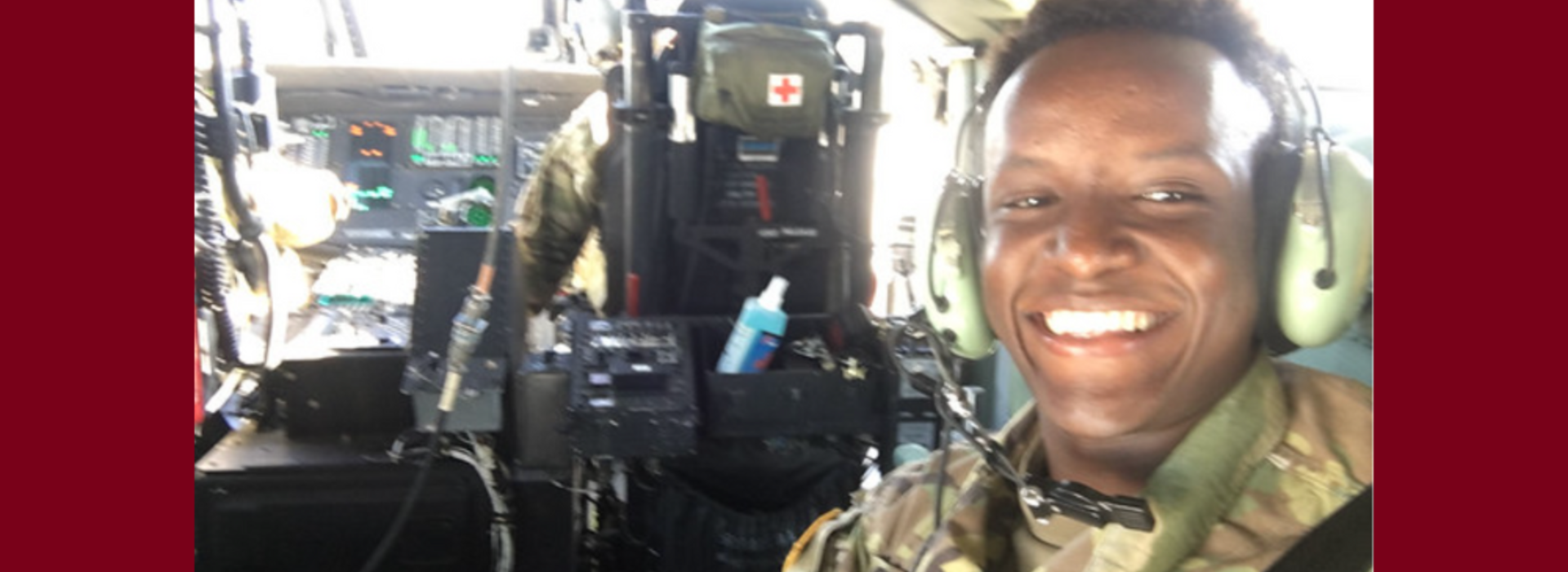
Medical Student George Ongoro’s Poetry Aims to Connect to Culture and Humanize Medicine
“A world we yearn for, where diversity thrives,
Where healthcare’s fairness is true in our lives.
A place where bias and neglect are banned,
And equitable care is given a hand.”
- George Ongoro, “Harmonies of Justice: Reflections on Virtue and Equality”
When second year Duluth medical student George Ongoro writes poetry, he taps into the beauty and rhythm of his native language, Swahili.
“I write mostly in English, but I used Swahili to learn English,” he explains. “I was trying to connect them. Swahili is a creative language, it has a lot of rhyming, word play, and storytelling. I used the lyricism of Swahili to find ways to play with English words, too.”
Ongoro and his family immigrated to the United States from Kenya when he was nine years old. While writing was a way for him to learn the language then, he didn’t start writing and publishing poetry until he began medical school.
“I think of my writing like therapy,” he says. “After a long day, I started going for walks, bringing my notebook, and writing. The rhyming and the creative language, lets me take emotions that I’m feeling and express them. It’s relieving.”
But these days, Ongoro doesn’t write just for himself; he writes to connect to community and advocate for the underserved.
“In medical school, we talk about communities. We talk about cultural competence. As an immigrant, that resonates with me. By being able to write, it’s my way to try to give a voice to those who are not able to fully express themselves.”
Ongoro’s poems ring with words of equity, health, and hope, and he publishes them in the hopes of starting conversations about important topics. Most recently, he published his poem “Resonant Melodies of Healing: A Juneteenth Symphony in Medicine” in the American Medical Writers Association Journal.
He uses his poetry to move him closer to his most important goal: being of service to other people. This has been his guiding principle throughout his life, leading him to joining the U.S. military after graduating high school, where he served as a medic.
“I was trying to connect how I could be of service,” he recalls. “The army was the quickest way that I knew that I could help people. You serve your country, but you can even deploy and serve other countries that are less fortunate than the United States.”
His time as a medic opened his eyes to the importance of health and ultimately inspired him to go to college and work toward becoming a doctor. Now that he’s here in medical school, he wants to break down barriers between physicians and patients to improve care. Ongoro believes that art and poetry are one way to do that.
“In many of my experiences before medical school, the doctor felt like this super important person,” he says. “It didn’t feel like a casual relationship, and I think it should. All forms of art can serve as a tool to humanize medicine and bridge that gap between patients and providers.”
Looking to the future, Ongoro is excited to begin rotations and find his place in the medical world. Above all, he knows that wherever he goes, his poetry will help him heal.
“In medicine’s tapestry, a brush I wield,
With empathy’s hues, a masterpiece revealed,
Each patient’s story, a canvas divine,
Where healing strokes merge, transcending time.”
- George Ongoro, “Resonant Melodies of Healing: A Juneteenth Symphony in Medicine”